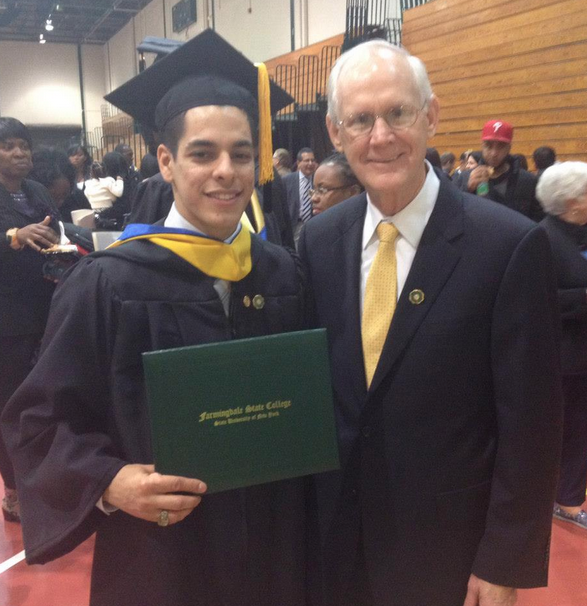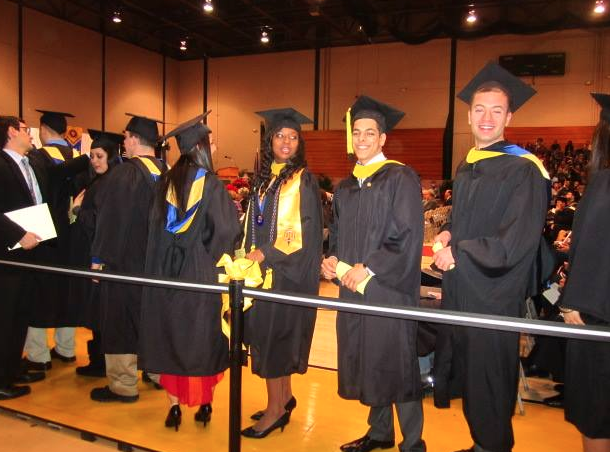 You’re seated next to a friend, eager to see your diploma in hand when another friend interrupts the excitement with the question, “now what?”. While some are excited to end their academic careers, many millennials are wondering, “now what?”
You’re seated next to a friend, eager to see your diploma in hand when another friend interrupts the excitement with the question, “now what?”. While some are excited to end their academic careers, many millennials are wondering, “now what?”
Since graduating, I’ve been fortunate to encounter the other side of “now what?” I’ve considered graduate school possibilities, taken up new habits and hobbies, drafted book ideas, and interned in Washington D.C. In the past months I’ve also learned some decisive lessons on the other side of that pestering question. I am now living in Argentina as a Fulbright teaching assistant and many of those lessons are being reaffirmed even as I’m discovering how much I enjoy teaching university students.
Below are a couple of the life lessons I’ve learned on the other side of graduation:
1. Don’t Stop Learning
Living as a lifetime learner will keep your mind fresh; you’ll always have something new to talk about. Perhaps you won’t become the next Sor Juana and question everything, but by regularly exposing yourself to new ideas you’ll be on your way to continued personal and professional growth. Fancy business cards won’t get you an interview, but a great idea could land you that dream job.
2. Write out your dreams
Plan ahead because time is precious. As the saying goes, “Those who fail to plan, plan to fail.” Decide where you’d like to be in a year, three years, five years, ten years and then start writing it down. The next step is to break down your biggest dreams into bite size goals, which will pave the way for accomplishing your dreams. Big dreams aren’t impossible to attain, but they always require discipline and effort. Keep in mind that dreams are goals that have a start and a finish line. Draft out the steps that will get you past the finish line and keep expanding your vision with each accomplishment.
3. Buy a Planner
Buy a Planner
Although your days of writing down homework assignments may be over, keeping a planner will allow you to set practical deadlines that are easy to manage. Before bed, list the top five tasks that must get down the following day. Avoid saying “I don’t have time” and remind yourself that effective time management depends on your willingness to do what is necessary. If you think you can’t, you won’t. A great way to motivate yourself to finish the hard work first is to plan your next reward. Perhaps the thought of a great vacation or a trip to your favorite restaurant might be a great motivator. Whatever it is, make an effort to discover what empowers you to push ahead.
4. Become an Expert
While it’s alluring to have multiple passions, it’s essential to cultivate expertise in a subject area. Being the jack-of-all-trades and master of none is difficult in the professional world where a premium is placed on specialized knowledge and skill. If writing is your passion, write everyday, ask your best mates to review your work and take pride in your craft. Maybe 1,000 people will visit your blog today or 10. In either case, if you take pride in your craft, you’ll be able to debut your best work in any circumstance. The goal should be to find something that you love, and dedicate yourself to it.
5.  Ignore what others Say
Ignore what others Say
It’s true that the economy is dragging behind and the value of a graduate degree is depreciating, but don’t listen to the hype. Do yourself a favor and ignore the critics. That’s right, ignore them. Don’t be afraid to take risks but make sure they are calculated. Try not to spend carelessly and instead of purchasing lunch everyday, go light by packing your own meals. Every once in a while remember to reward yourself; it makes a difference. In due time, the economy will turn around and those who were willing to invest in themselves will reap the benefits.
On the other side of graduation, you’ll encounter challenges but overcoming them with a good mix of perseverance and humor will prove to be rewarding. Therefore, continue to invest in your education, plan well, budget your finances, ignore the critics, take calculated risks, and carry on.